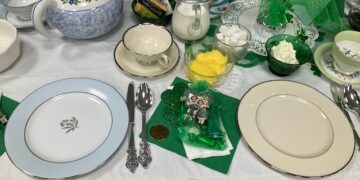
At this time of year many of us garden enthusiasts find ourselves in abundance of tiny green shoots ready for the ground but not as much real estate as it were. One unique way to distribute these little guys is through a plant swap. Plant swaps are a new-to-me concept in terms of planning. While I have heard the idea for years now and have intended to participate in several, I have never actually conducted or participated in one. As an adult programming librarian, I am always looking for unique opportunities to engage my community and have recently been planning a swap for our branch a little later in the summer. While the concept and execution are simple, there are a few things to consider.
After finding a date and time that works best for you, advertise it in your community. Make some fun flyers using Canva and pass them around. Some grocery stores, community centers, and even libraries are happy to post your event flyers provided they are free and open to everyone. The swap can be as informal as a few card tables in a cul-de-sac or as elaborate as renting out a room in a community center, church fellowship hall or library and using it for that purpose.
There really are no rules for how to conduct a plant swap. Most are informal ways for plant enthusiasts to trade plants, seeds, and gardening tips. Having labels and markers available for folks to jot down plant care information on their plants is useful, as well as a few plants of your own to share. Be clear in your expectations for the day. If you simply want to trade veggie starts, make that clear in your signs as well as the day of. Perhaps you will end the day with an entire garden of opportunities and even some new gardening friends.
If organizing your own plant swap seems daunting, keep your eyes open for various events in your community. Often libraries, garden centers and community organizations will host gatherings of a similar nature free of charge, or for a small fee as a fundraiser. These events are a great way to meet fellow plant enthusiasts as well as gain helpful tips on how best to care for your new plant pals. Perhaps a visit to a community-run plant swap will serve as a muse for you to set up your own in the future.
Whether you are a plant pioneer and plan your own plant swap this season or join in with an established group, sharing our abundance is a beautiful and economical way to provide each other with good food, important knowledge and kinship with one another. Happy planting!
































